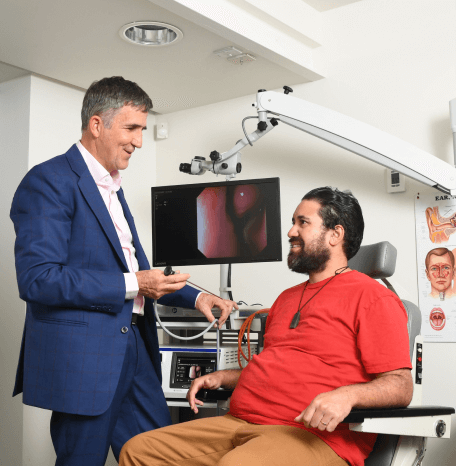Sinusitis and Endoscopic Sinus Surgery
Your sinuses are the hollow spaces in the bones around your nose. They are lined with cells which form the mucous membrane and are covered with a thin layer of mucus. Mucus plays an important part in capturing particles and germs that enter through our nose and helps moisten the air that we breathe in.
There are four main pairs (one on each side) of sinuses:
- Frontal sinuses – located just above your eyebrows, in your forehead
- Sphenoid sinuses – located behind your eyes
- Ethmoid sinuses – found between your eyes
- Maxillary sinuses – or check sinuses, the largest sinuses, and are found on either side of your nose, just above your jaw
Common sinus complaints such as blocked sinuses are often managed by GPs; however, ongoing sinus conditions should be seen by an ENT specialist like Dr Francis Hall.


